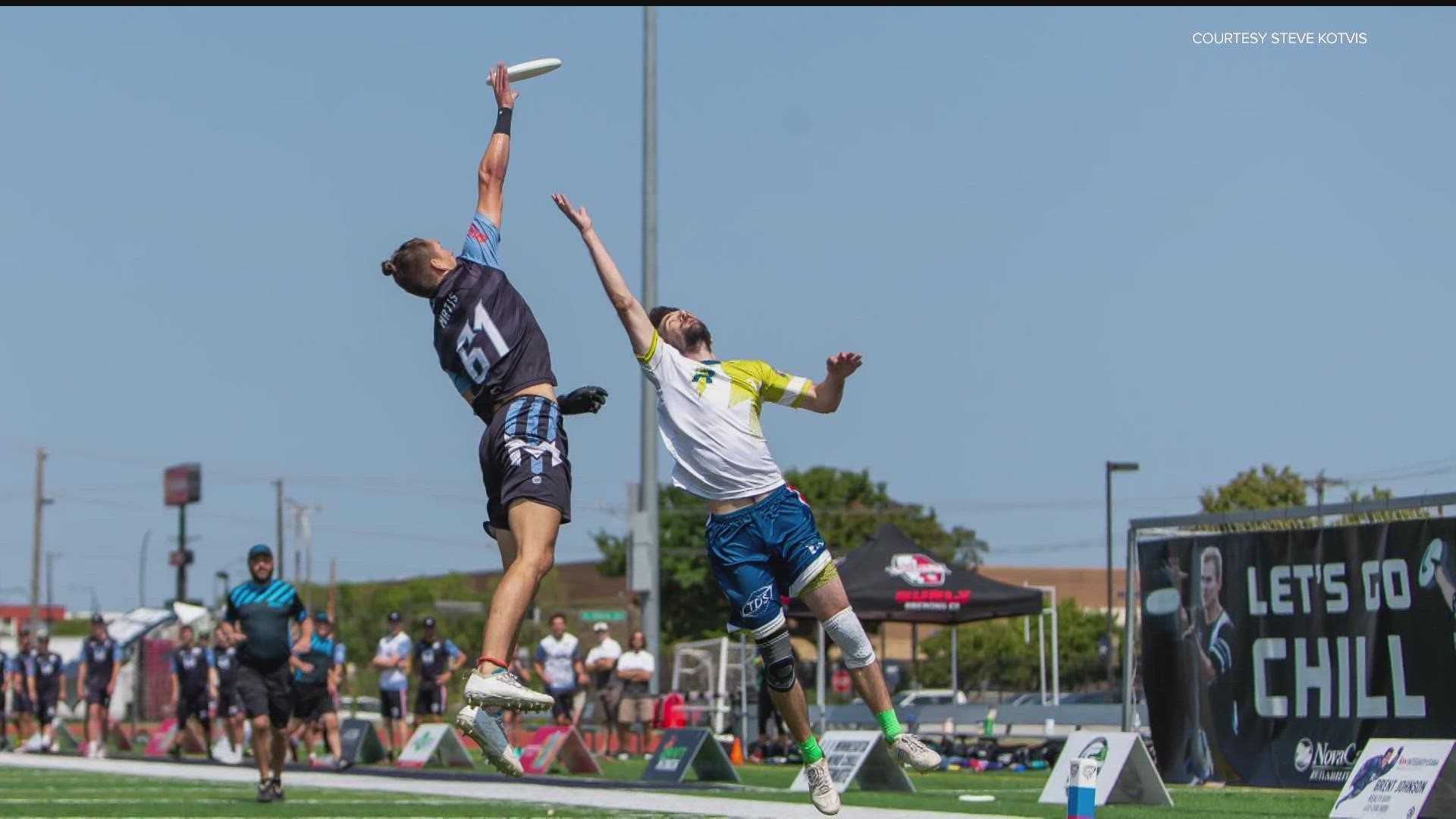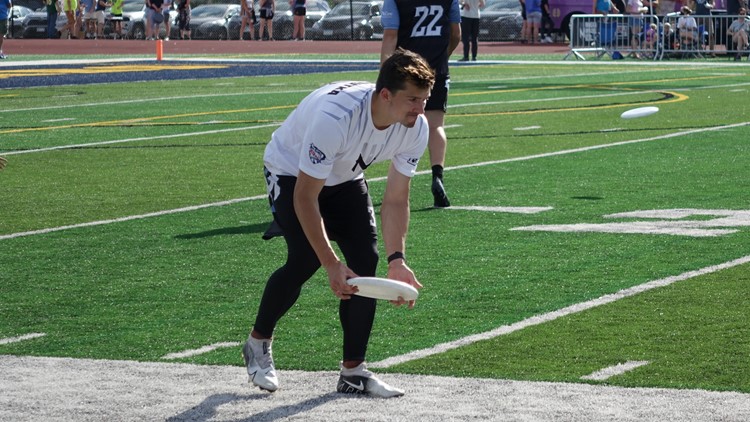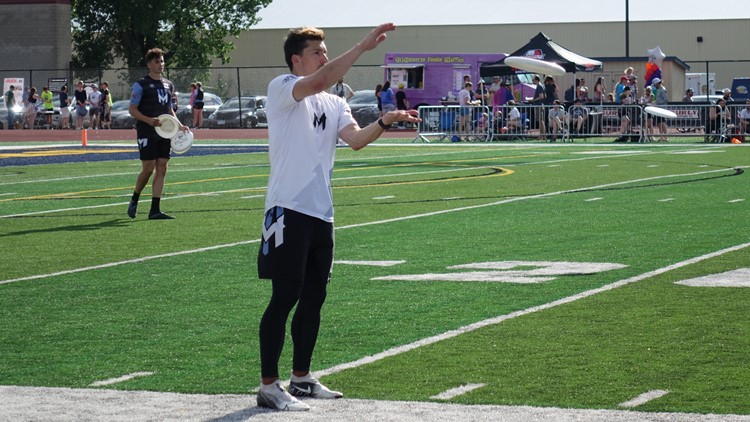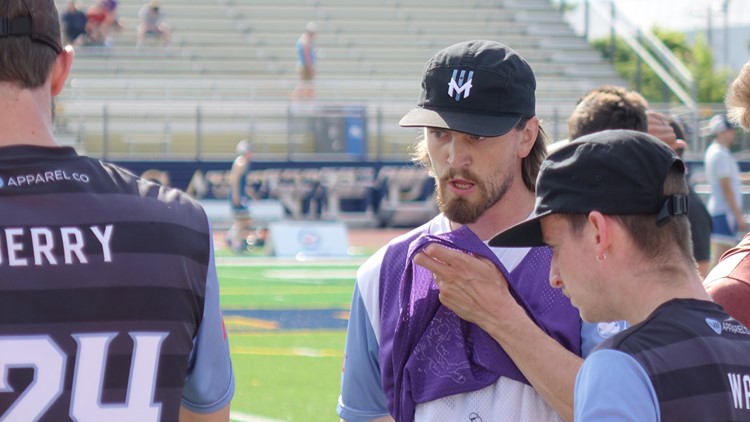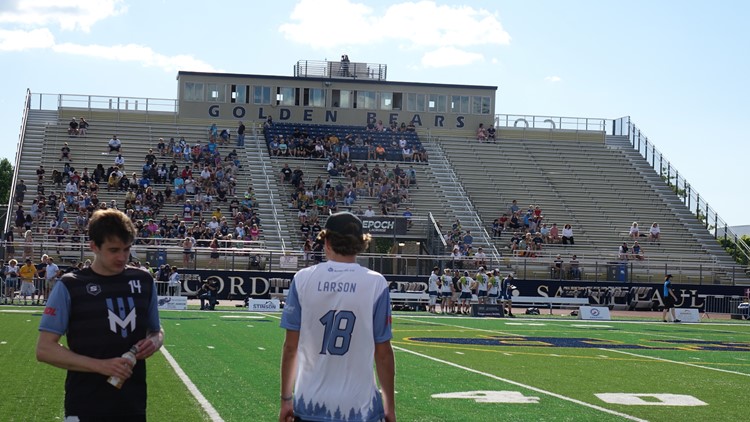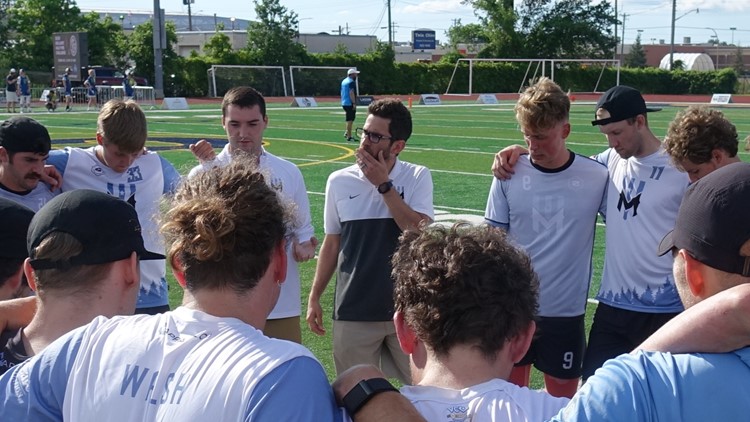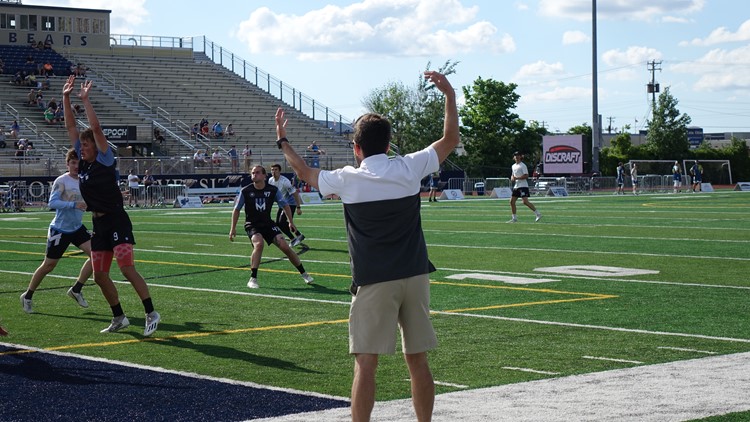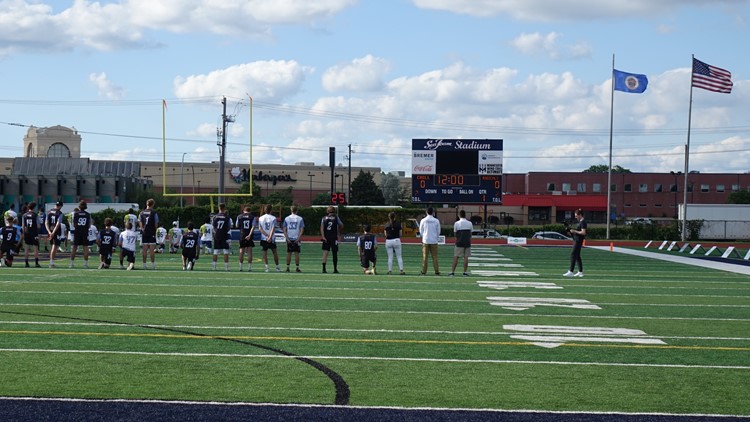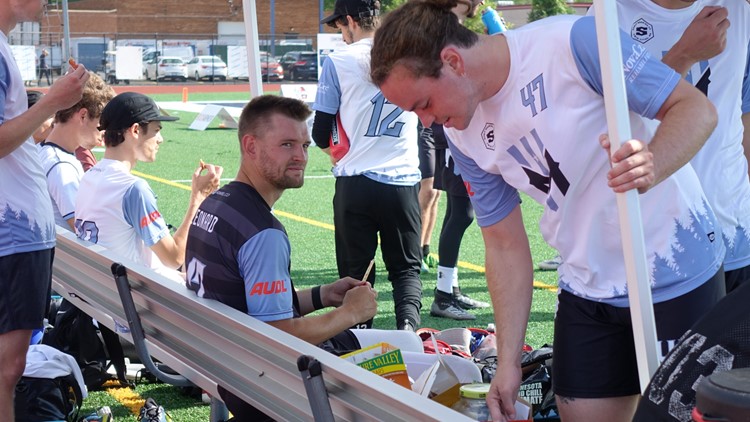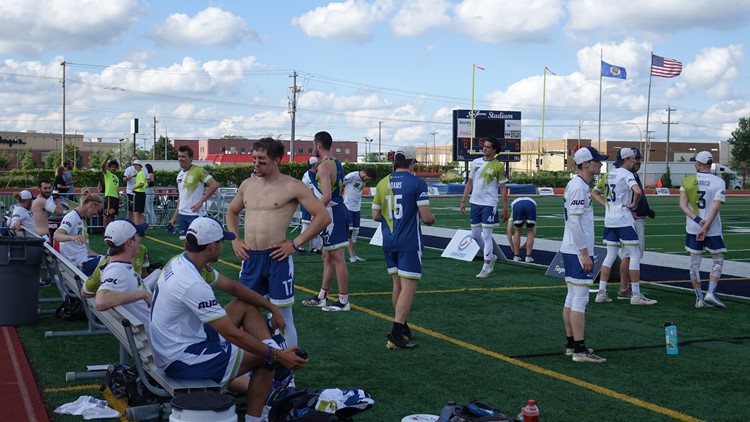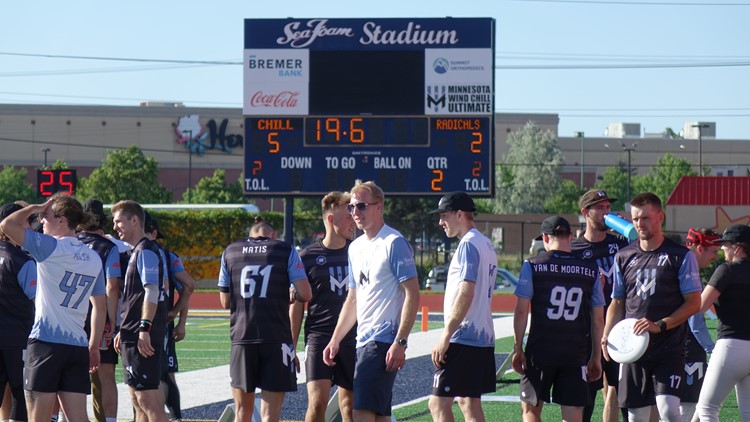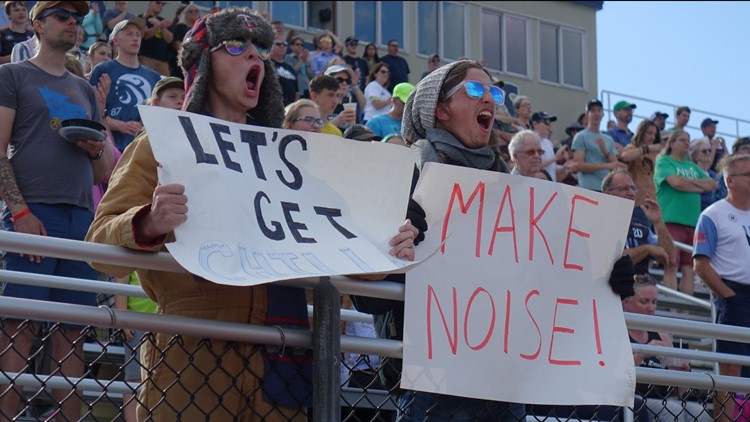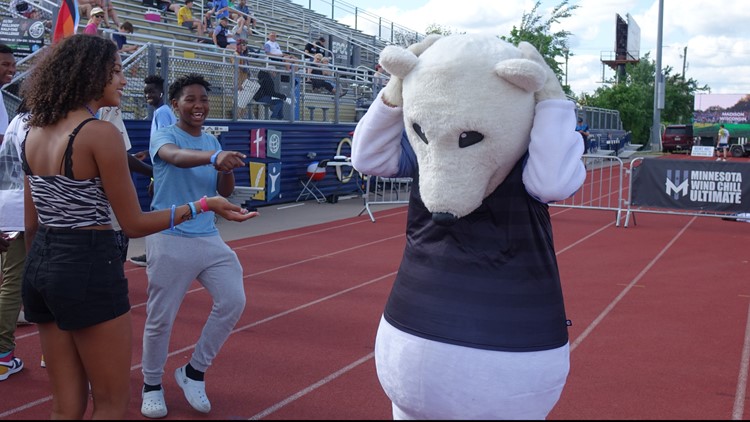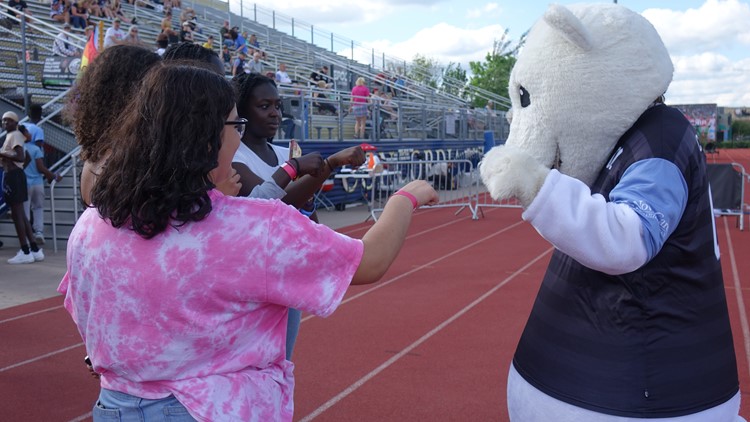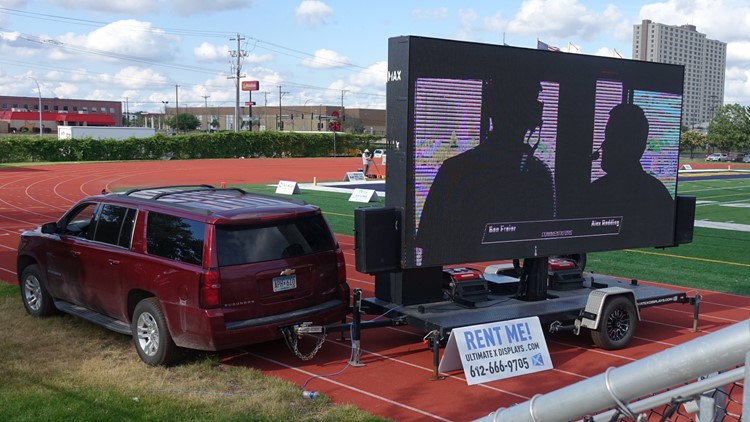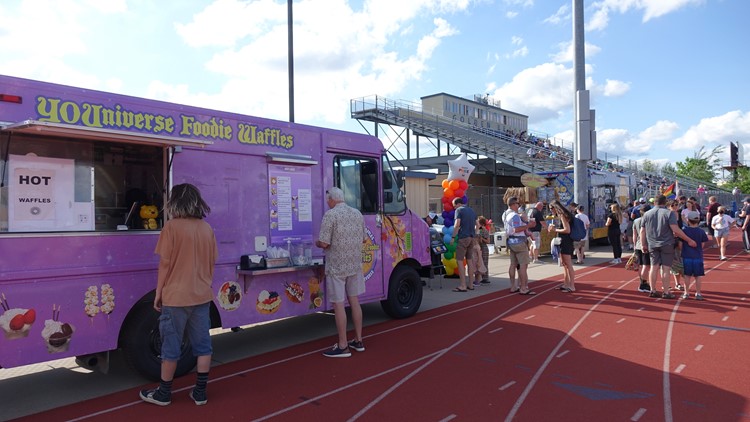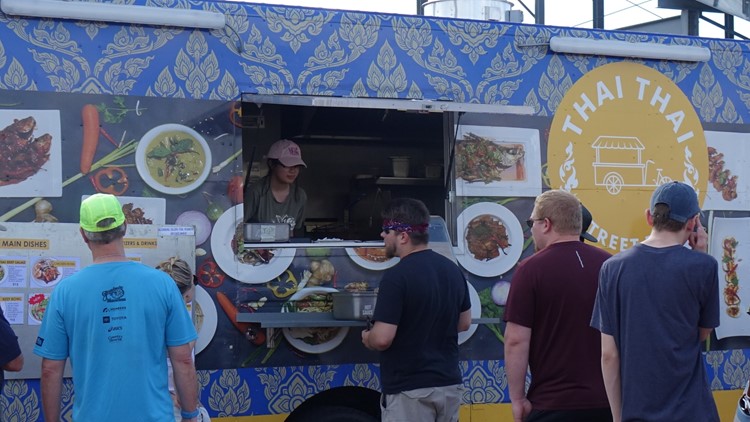Minnesota's ultimate frisbee teams work to expand the sport
Ultimate frisbee may be a mainstay in schoolyards, but two semi-professional leagues are finding a home in the Twin Cities and trying to grow and expand the sport.
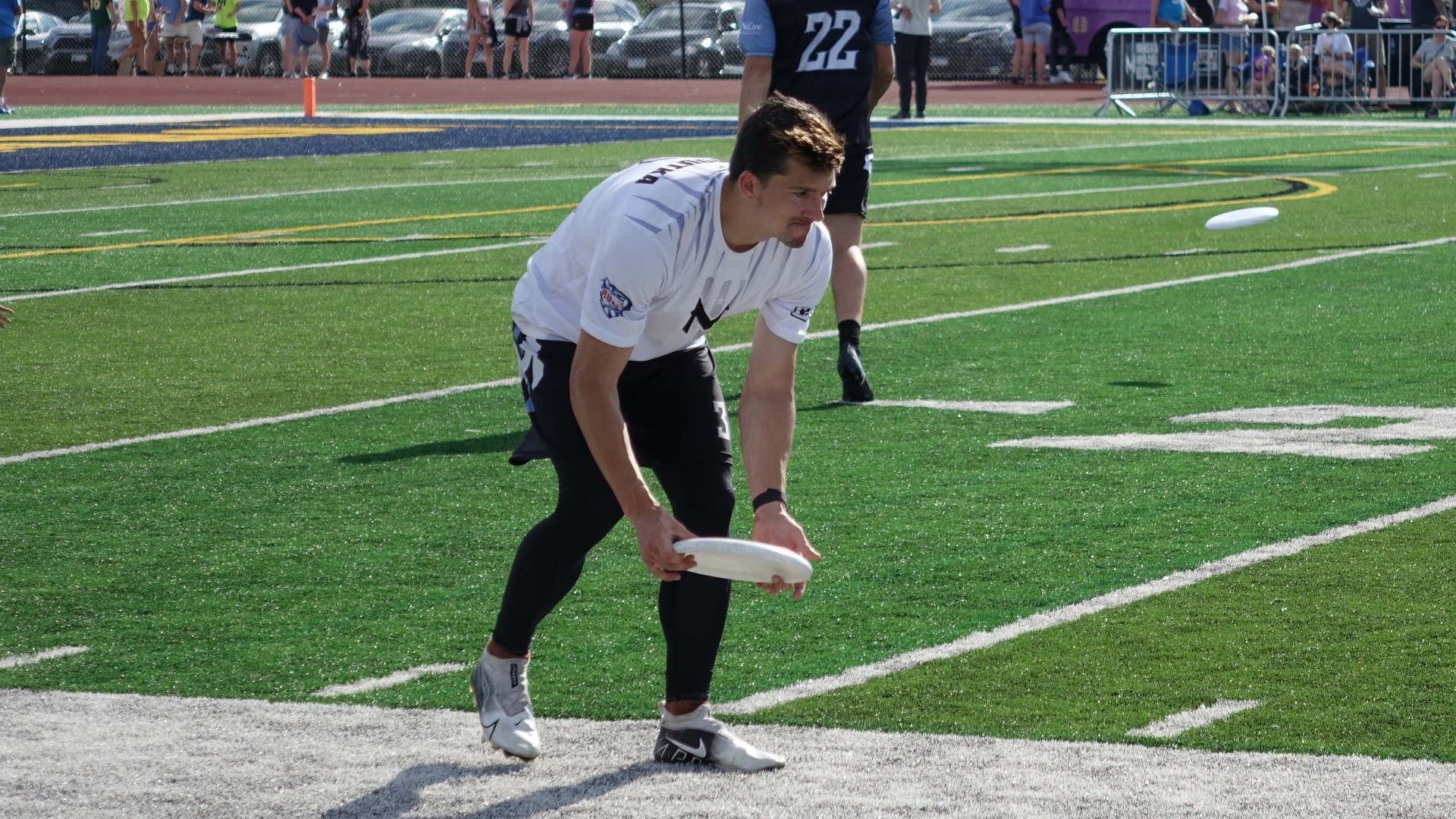
Editor's Note: The video above originally aired on July 9, 2022.
With a 2-year-old daughter at home, his own insurance firm and a budding semi-professional team to coach and manage, Ben Feldman says his summers are chaotic. But the chaos of operating a fledgling sports team and expanding it for the next generation of fans and players is worth the chaotic summer months.
In the middle of a hot Minnesota June, Feldman leads the Minnesota Wind Chill's practice at Robbinsdale Middle School as they prepare for their upcoming home game at Concordia University, St. Paul's Sea Foam Stadium. For players on the team's 30-man roster, who practice in 100-degree heat, playing semi-professional ultimate disc isn't about the money - it's about continuing to play the game that they love, even if others question its legitimacy.
Ultimate frisbee, which is called ultimate disc in semi-pro leagues, is a staple of schoolyards and college campuses but has grown and matured as a sport over the last few years. For those who have never played ultimate disc, a frisbee is a simple dog toy, mostly seen at dog parks with pups flying through the air to snag it.
The American Ultimate Disc League was founded in 2010 and launched in 2012. Now, the AUDL stretches coast-to-coast, across the United States and Canada, with 25 teams. The Wind Chill joined the league in 2013 and has made the playoffs three times in the seasons since.
'There's something unique about a disc floating and flying in the air'
For Feldman, his love of the game stems from the same love that many football fans have.
"There's something unique about a disc floating and flying in the air," Feldman said. "In football, you get the same excitement for a few seconds; in ultimate, it's triple that amount of time. The anticipation, I think that's what makes our sport so exciting, you got people laying out, diving for the disc."

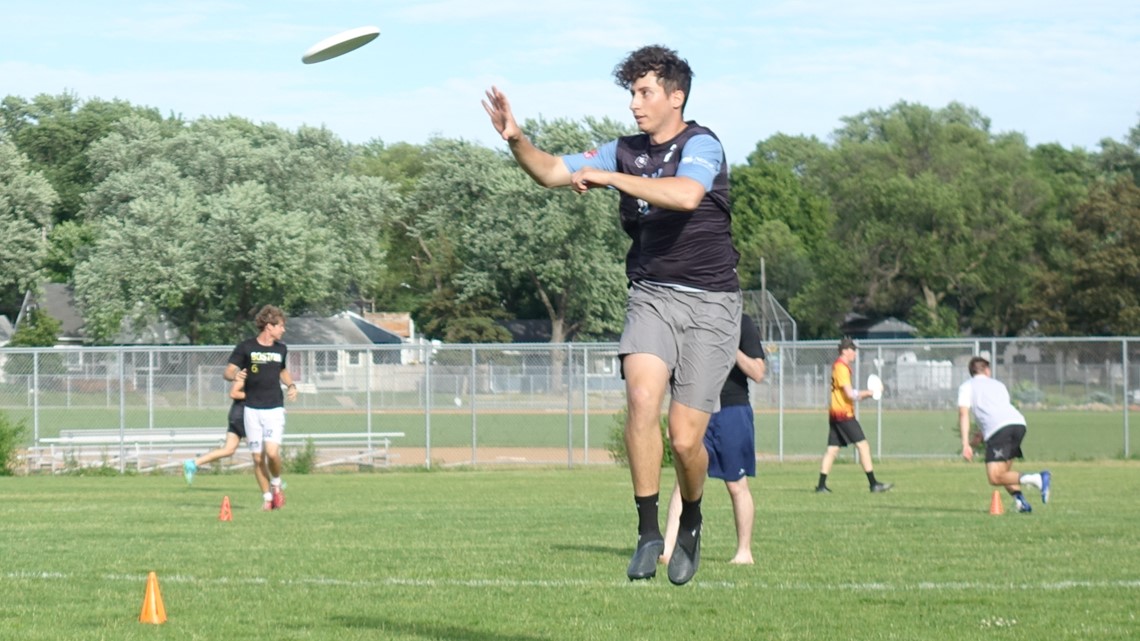
Before becoming a co-owner of the Minnesota Wind Chill, Feldman played at the University of Wisconsin-Madison.
"I played and am really close with a lot of guys on the team so that always makes it even more motivating when you got close friends," he said.
While the Wind Chill looks toward the rest of its 12-game regular season with their sights on the playoffs, the Twin Cities' other semi-professional ultimate disc team is looking ahead to their off-season.
The Minnesota Strike, which is a part of the 12-team Premier Ultimate League, ended their six-game regular season on June 4 with a 7-20 home loss to the Raleigh Radiance. The team ended the season seventh in league standings with a 2-4 overall record.
The league launched in 2019 with eight teams and grew in 2020 with four expansion teams, which included the Strike.
Leslie Boey, the co-owner and operations manager for the Strike and a Ph.D. student at the University of Minnesota, said the team had just finished its first official season after it was founded in 2020, just before the start of the coronavirus pandemic.
While the Wind Chill serves as the men's ultimate disc league, the PUL focuses on providing cis/trans women, non-binary, genderqueer and genderfluid folks a place to play ultimate, according to Boey.
"There had yet to be a team for women and non-binary folks," she said. "The need was there, the talent is here, my gosh, the talent is here. It's been really exciting to see people come out."
With leagues open to everyone across the gender spectrum, ultimate disc is poised for wider growth as a sport, a goal both the AUDL and PUL aim for.
'Cheap tickets, good food' Experiencing a Wind Chill game
Feldman said the Wind Chill average about 500 to 800 fans per game, with attendance growing after the school year ended. With cheaper tickets and smaller crowds than some of the Twin Cities' other professional sports teams, Feldman said AUDL games offer a family-friendly experience without breaking the bank or taking up too much time, since most ultimate disc games start and finish within two hours.
To put it simply, "cheap tickets, good food, good amount of people and a good time," Feldman said.

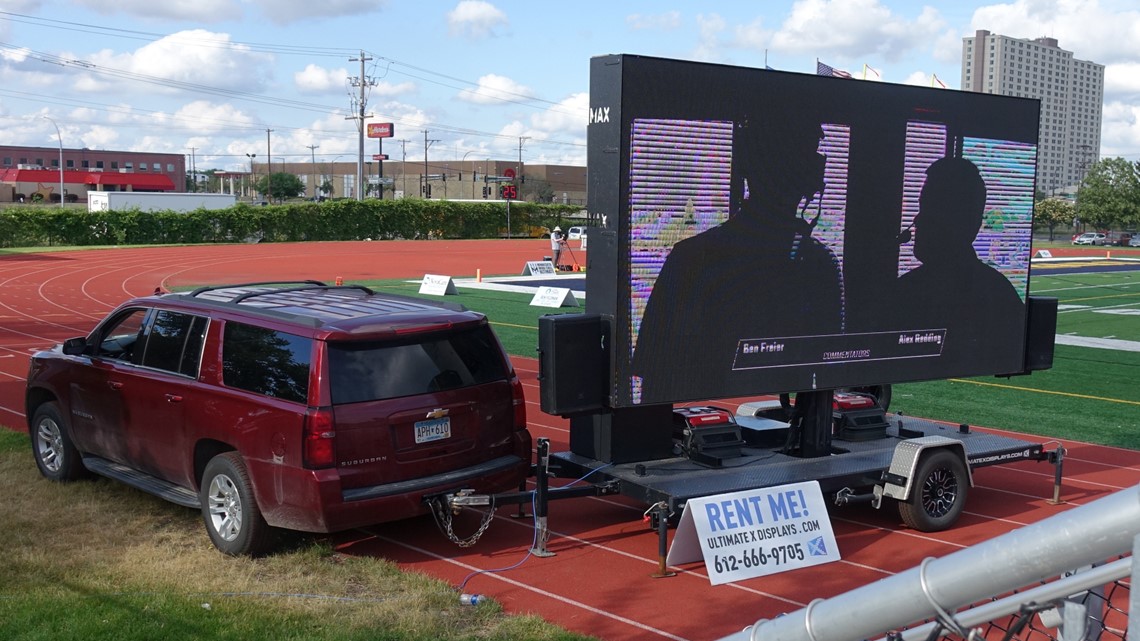
He added that there are yard games, disc games, a balloon artist, two to three food trucks, a beer garden and a Jumbotron at Sea Foam Stadium that plays the league's live stream of the game during game days, ensuring fans don't miss any of the action and replays.
During the Wind Chill's game against the Madison Radicals on June 25, which was also the team's Pride Night, the Surly beer garden was filled with adults enjoying a drink. With the beer garden butted up against the sidelines near the south end zone, fans don't have to go far for a good view of the action.
Right next to the beer garden, there is an activity area for kids on the turf between the end zone and the track. With disc throwing and jumping challenges, and team-branded cornhole boards, kids kept themselves busy throughout the game.
A limited number of fans also received a free beer coupon upon entry for the official post-game party at Surly Brewing Company, which is also the majority owner of the team.
Tickets to the game for adults are $12, or $26 for beer garden access, and kids ages 11 through 18 are $5. Kids under 11 are free.
"Our game day experience is one that's a little more intimate and fun for families to be involved with and they also don't have to break the bank to come out and cheer on a local sports team," Feldman said.
'It will open your eyes to a new community and new type of athletic ability'
For Wind Chill captain Rocco Linehan, playing at home gives him a chance to see the next generation of players and fans through his work with Youth Ultimate.
"Sea Foam's great," Linehan said with a grin. "Last year, I think we set our attendance record for every home game. It's a really fun atmosphere, the fans love coming out."

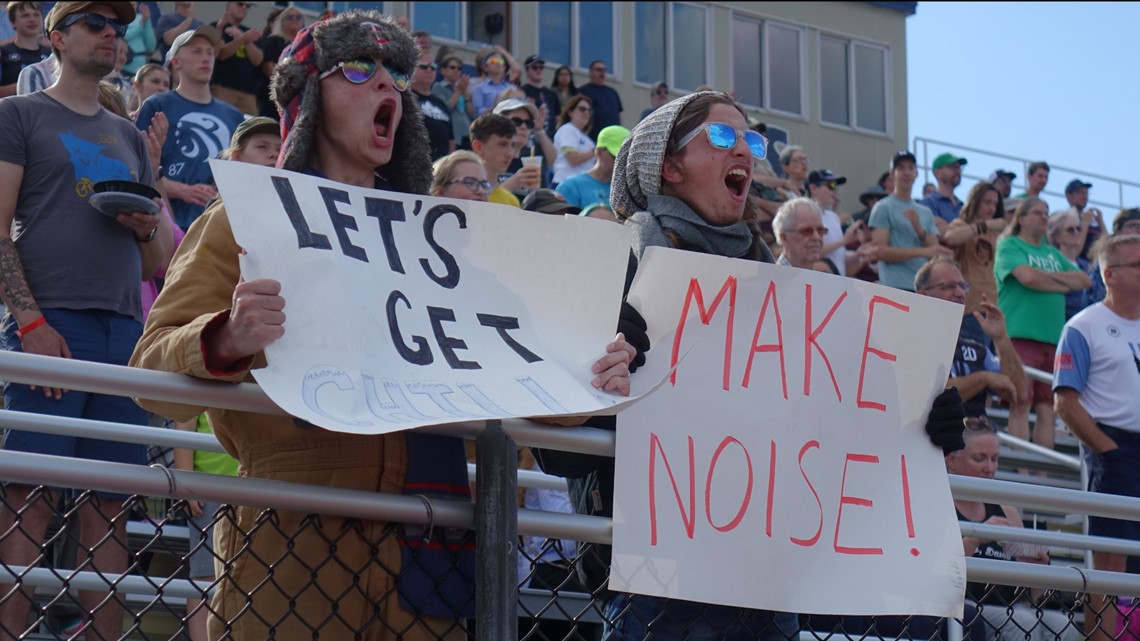
"It's a very unique sport in that the flight of the disc and the amount of time it spends in the air when it's being passed from one person to another, you know, the deep bomb or big huck deep, one-on-one, the anticipation factor is really high, relative to what you get in any other sport," Feldman explained.
Once the final whistle blows, fans head onto the field to talk with players and play with their own discs.
"If you haven't seen ultimate, or ever played it or experienced it, I really suggest coming out to see because, I can't say it enough, it really is a unique experience and it will open your eyes to a new community and new type of athletic ability," Linehan said.

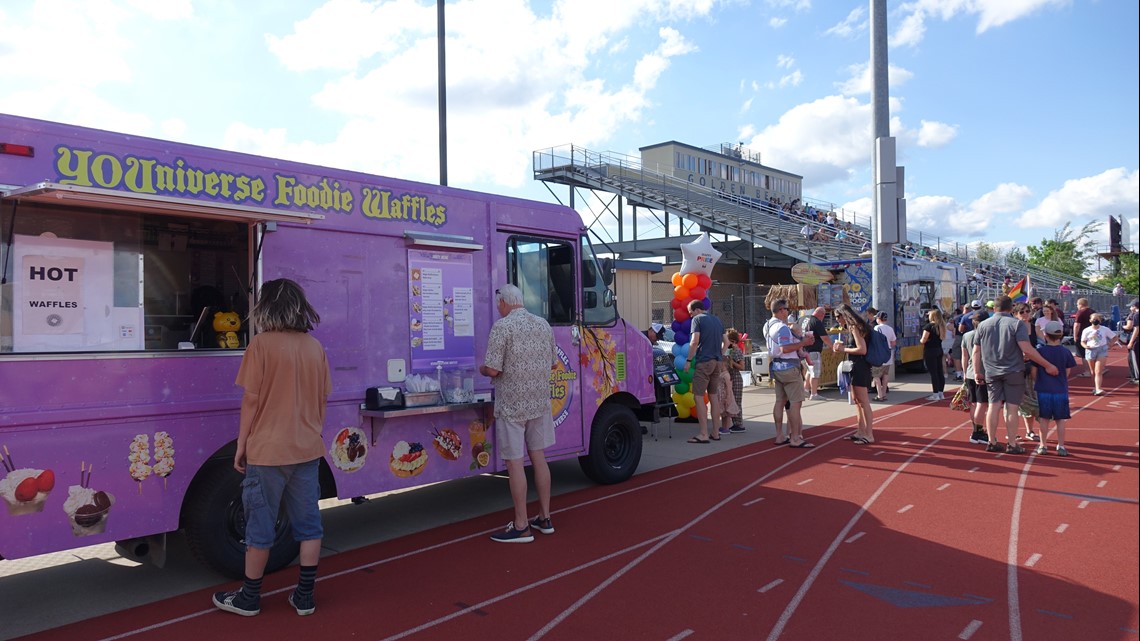
'We run a pretty lean operation' How semi-pro ultimate disc compensates players
As the team's general manager, head coach and minority owner, Feldman has his hands full each week leading and running the team but said he has help from fellow coaches and volunteers.
"It's a little bit of a juggling act, we run pretty lean," he said. "We're still trying to grow, getting our attendance up and always trying to look at getting new partners and sponsors, but we run a pretty lean operation."
The players in the AUDL and the PUL don't make much, only $25 a game, however, playing semi-pro does offer the players more than club teams.
"No one is doing this full-time, for the most part, right now, everyone [has] their day jobs, they're just out of college, things like that," Feldman said. "But we try to do what we can to take care of them... it's more about making sure their travel experience and everything about that is flawless."

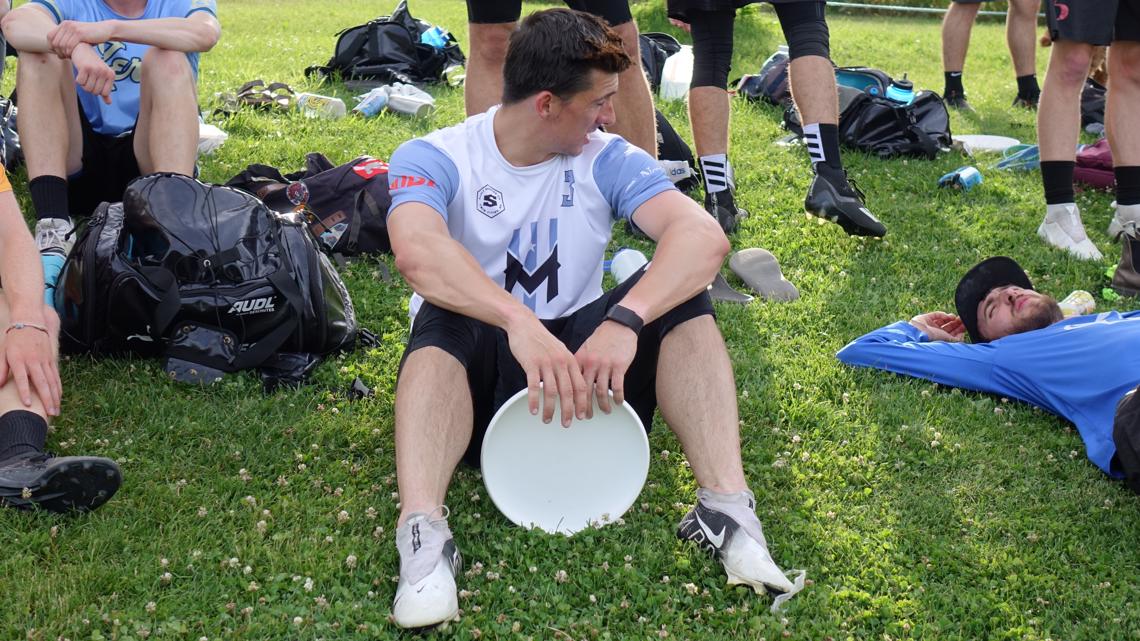
Wind Chill players acknowledge they need day jobs, but say playing the game they love for barely any money is worth it, especially since the AUDL offers more than club teams could or will.
"For Wind Chill, we end up getting a handful of bucks a game, it's basically beer money but we do get to play for free, all of our expenses are paid for, so travel, lodging, practices, our fields are paid for," six-year Wind Chill veteran Bryan Vohnoutka told KARE 11. "All of the extra pieces that go along with it are basically taken care of so all we have to do is focus on showing up, putting in the work and then going out there and performing."
The team also covers the cost of transportation, equipment and support staff, like trainers and team doctors, who are also on the sidelines during practice to help players with injuries and keep them healthy.
The Minnesota Strike also covers the cost of transportation and kits for players, saving them from the costs that can come along with playing in club leagues, Boey said.
Traveling to games can cost club players thousands of dollars, even upwards of $5,000, over the course of a season or tournament, Feldman said.
"It's our biggest cost obviously, as an organization, is transportation, but we know it's so essential to player experience," Feldman said. "Our players aren't being paid thousands upon thousands of dollars to be a part of the team so its really important for us to make sure the experience and invest in places like transportation and minimizing time on the road."

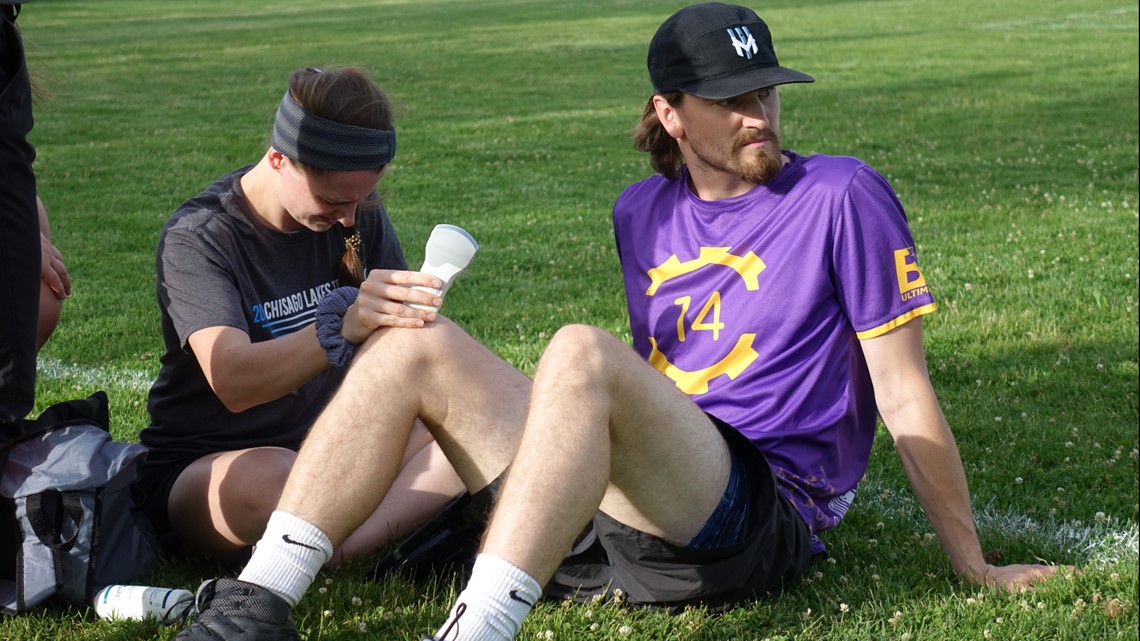
Feldman added that playing in the AUDL provides players something that many club teams simply cannot - game footage. With several camera angles and photographers at the games, players have access to game footage they might not get elsewhere.
"With where we're at as an organization, it's more about the experience, the perks, the travel, the convenience and really trying to invest our money there and make sure the experience is top-notch," Feldman said.
Boey said the Minnesota Strike also offers players a better level of play than what they would see in the club scene.
"A lot of club teams, unless you are the top team in your division, you probably aren't going to be playing national, international teams," they said. She added that one of the teams in the PUL, the Medellin Revolution Pro, is based in Colombia and just won the league championship.
For Vohnoutka, playing ultimate isn't about the pay, it's about playing the game he loves with friends and the opportunity to win a championship keeps bringing him back.
'No one is doing this full-time'
"Playing at the top level of the sport also keeps you coming back, you're hungry to try and improve every year and ultimately win a championship," Vohnoutka said.
After playing basketball and baseball in high school, his friends invited him to play ultimate disc, which started his love for the game. In his senior year at Eden Prairie, Vohnoutka played on the school's ultimate disc team. He added that pitching in baseball helped with his "flicking" in the AUDL.
For his day job, Vohnoutka works at a Twin Cities software company that specializes in subscription payments. By the time AUDL players could possibly be paid enough to play full-time, he said he would be too old to play but it would "be really cool for the kids who are playing nowadays."

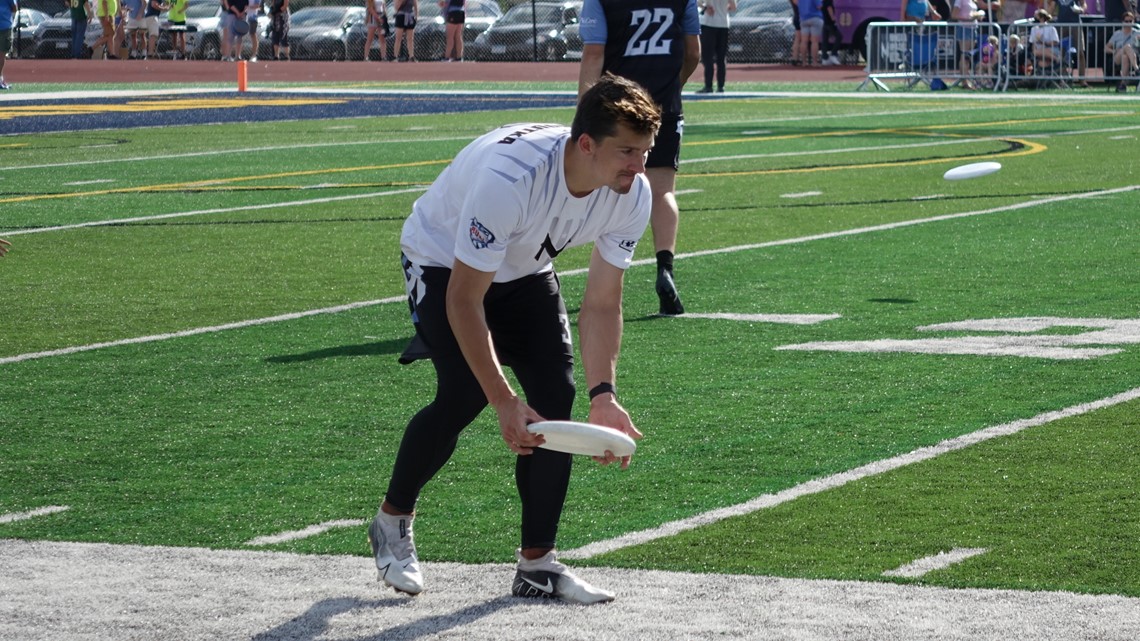
"In hopefully five, 10 years, playing [for the] Wind Chill would potentially be almost an alternative to having a job, where you could actually be full-time, where you're devoting all of your efforts towards frisbee, and you're getting paid enough to make that a reality," he said.
Feldman said only about the top 5% of AUDL players are getting sponsorship deals and other opportunities through the league like signing or performance bonuses.
"Every team is a little bit different," Feldman said. "$25 is kinda our baseline for most of our in-town players and things we've always done. It's more of expense coverage for gameday for home games and things but we try to build in some fun incentives for the players when we accomplish team goals or player performance, accreditations at the league level, things like that."
With the Minnesota Wind Chill and the AUDL acting as the men's ultimate league, the PUL was built for women and non-binary players in mind.
'We're really [a] community-driven, community-built team' Breaking down barriers so everyone can play
While the Strike has three owners, Boey says the community is what got the team off of the ground.
"We're really [a] community-driven, community-built team," Boey said. "Even though I'm an owner and the other two folks are owners, the financial support for this team came from the community."
The PUL, which was founded in 2019, streamed all of its games on its YouTube channel and currently operates as a 501(c)(6) non-profit organization with 12 teams. The Strike joined the PUL in 2020 as one of the league's first expansion teams.
However, the COVID-19 pandemic struck just as the Strike's roster was finalized, pushing the start of the new team's debut.
According to Boey, the team just finished its first complete season and while the team's record wasn't stellar, she said fan attendance far exceeded any of her expectations.
'It kinda makes me emotional because I didn't realize the scope of how far Strike would reach'
They said the Strike had about 300 fans come out to each of its home games, which were played across the Twin Cities metro.
"I thought we were gonna have like a 150, 200 people, like cool," Boey said with a laugh, "but people really just showed up and blew us out of the water so I think that's a testament to how much people stayed connected to Strike."
She emphasized that the fans and the community supporting the team through a delayed start was the team's biggest success this season.
"It kinda makes me emotional because I didn't realize the scope of how far Strike would reach and really just how much the community has shown up for us, not just at games, but with their generosity of time and resources and just overall support for the sport," Boey said.
The league and the team heavily rely on donations and sponsorships to stay afloat.
The players aren't paid major salaries and the league doesn't have typical paid referees or officials at games. Rather, the players themselves have to officiate the game with an "observer" to mediate. When a foul is called, players have 10 seconds to reach an agreement on the call before an observer steps in.
According to the PUL rule book:
"When Observers enter the discussion at the end of the allotted 10 seconds of player discussion, they will say “Have you resolved the call yourselves?” If the observer had a clear view of the play they can add “I had a clear view. Do you want me to make a ruling?” If the answer is no to either question, the observer will stop the clock to gather more information from the players about what happened in order to make a ruling."
Boey explained that observers are also there to keep the game going and calling scores.
The league also has team ambassadors, who aren't team captains but work to ensure that the "spirit of the game" is followed. They also work to get the teams to connect and build rapport among players across the league.
Boey said that since so many sports are dominated by white men, the team and the league are working to change what the spirit of the game means to other people.
"Spirit has also been framed in a very white-dominant frame of mind, so in terms of 'how people should behave,' might look really differently when conducting yourself based on race, gender, different social identity markers," they said. "So spirit of the game is still a core part of ultimate, and there's more conversations happening now that unpack what that really looks like."
'Content is king' Growing ultimate disc and their leagues
Major professional sports leagues across the continent are expanding and finding success, including the National Hockey League, which has new franchises in Las Vegas and Seattle, and Major League Soccer, which recently signed a massive 10-year media rights deal with Apple.
Vohnoutka said the dream for the AUDL is to become like Major League Lacrosse or even Major League Soccer, but becoming as big as football is a "moon shot."
While the sport is still in its infancy compared to the storied leagues at the top of the American sports pyramid, Feldman is working toward getting the AUDL on par with the major leagues.
"My goal is to get more and more people playing it and try to make it a top-tier sport in the future, which is what we're all after," Feldman said.
In order to grow ultimate disc into one of the major sports in the country, Feldman knows the AUDL needs to bring its content to the next generation of fans.
"I think to build and grow our brand, content is king," he said. "I think to grow any sort of product, branding or marketing, you need to have rich content and you need to have good presence on social media, in general, if you're going to grow with the new generation of fans."
For Feldman, the sport provides an excellent highlight reel and SportsCenter "Top 10" material, as the frisbee floats in the air during a pass.
The AUDL does have a television deal with Fox Sports, where a game of the week airs live and on tape delay on Fox Sports 2 each Saturday. The league has its own streaming service, which costs $9.99 a month and airs a Friday Feature game and every regular-season game throughout the season.
'You need to have rich content and you need to have good presence on social media'
With the league's recent success, the AUDL is turning its attention to making inroads with sports betting.
"I think every year we continue to make strides, the league's expanded, some of the new expansion teams have had tremendous success out west with attendance and things like that but the league is very focused on, I would say, with statistics and making that part of the game really attractive and exciting," Feldman said.
With better team player statistics available, which include ultimate disc-specific stats, gambling on AUDL games could provide a new revenue stream for the league.
Moving forward, Feldman hopes ultimate will be the next big American sport.
Slideshow from Minnesota Wind Chill's game against Madison
Over the last few years, Vohnoutka says he has seen the sea change in youth ultimate in Minnesota and is hopeful for the future of the sport. When he started playing in high school, he said Eden Prairie only had one team and now school districts across the metro have middle and high school teams.
"Just the talent level these kids have already at 16, 17, 18, they're miles ahead of throwing where I was and even their understanding of ultimate," Vohnoutka said, "so it's really cool to see all of these young athletes come up, who have a really good idea and really good game IQ, come in and be able to improve upon what we started a young time ago."
Boey with the Strike echoed similar sentiments, adding that Minnesota is one of the top states in the nation for youth ultimate participation.
However, growth in the PUL and the Strike means bringing down barriers that would otherwise keep people away from the sport.
"I hope [in the future] that we have more minoritized folks playing ultimate," Boey said, "like racial minorities, ethnic minorities, gender minorities in particular, and people from lower socio-economic backgrounds."
They added, "I hope, and this is one of the, really, the goals of Strike, is to be role models and accomplices for under-represented folks to enter into this sport, to see themselves in a position, like 'I can do that.' Like, 'Do you see Leslie over there?' and maybe it's some little Asian girl and she's like 'Wow, I could own a team someday.' I wanna see that."
Until ultimate disc is solidified as the next big sport like soccer and lacrosse, the players for both the Wind Chill and Strike will continue playing the game they love and building the sport without major contracts or salaries.
"The sport is growing, right, and we're trying to facilitate that and show people that there is a professional opportunity to compete," Feldman said.
Watch more of Minnesota sports:
Watch the latest sports videos - from high school hockey to the Minnesota Vikings and everything in between - in our YouTube playlist:

